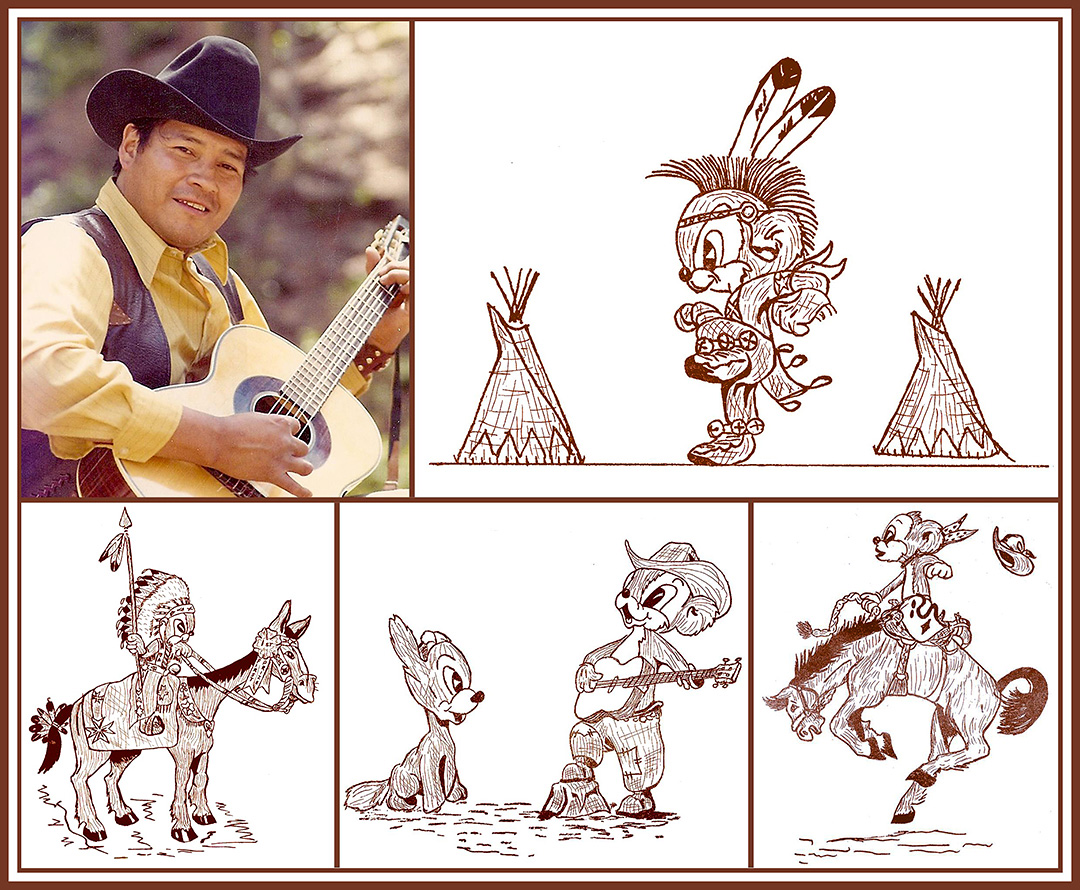
First Nations languages, identity and happinessCOFFEE WITH WARREN, with Warren Harbeck |

|
For the late Stoney Nakoda artist and language promoter Jimmy Kaquitts, of Morley, summertime was happiness time. Photo by Warren Harbeck, Summertime in southern Alberta is happiness time. This was especially true for one community leader from Morley whose ancestral heritage equipped him well for expressing that happiness. I’m referring to my happiness mentor, the late Jimmy Kaquitts, cowboy, artist, entertainer, and promotor of his Stoney Nakoda language. This past weekend I thought about Jimmy often while listening to First Nations elders from across Canada. They were participants in ANVILS, a conference held at the University of Alberta on indigenous language sustainability. They, too, shared a deep love for their ancestral cultures and languages: Nakoda, Tsuut’ina, Blackfoot, Cree, Dene, Tl’ingit, Haida, Mi’gmaq, and others. Their languages beautifully mirrored the richness of their cultural heritage and holistic worldview, mirrors on ways of life that dare not be lost, they said. Indeed, their languages were at the very heart of the identities of each member of their community. As Stoney Nakoda Elder Tina Fox, one of the local participants, often says, “You are what you speak.” Well, the elders’ enthusiastic comments got me thinking about Jimmy Kaquitts’ celebrations of his Stoney Nakoda language and heritage, especially in some of the experimental reading materials he produced back in the early 1970’s. Jimmy was part of the team that developed a modern writing system for Stoney Nakoda. One of his contributions was a humorously illustrated booklet featuring Ozîjan (pronounced approximately like o-ZHEEN-jahdn), “Little Bear,” and his loyal dog, Sichu (SHEE-choo). The title of the book was Mnogedu Timânîbi (mno-GAY-doo TEE-mun-NEEM-bee), “Summer Holidays.” The text was entirely in Stoney Nakoda using a writing system that reflects the actual sounds of the language, and not some colonized misrepresentation of those sounds often seen in Anglicized Stoney place names around the province. In the booklet, Jimmy depicted Ozîjan enjoying himself at the Calgary Stampede. He’d be doing a chicken dance in the Indian Village, riding in the Stampede parade, singing to Sichu, and competing in a rodeo. Jimmy’s contributions led eventually to his appointment as director of the Stoney Cultural Education Program (SCEP), the harbinger of many groundbreaking culturally and linguistically respectful initiatives for First Nations classrooms. In all his endeavours, he never lost sight of his love for life, especially in the summertime. The guitar-strumming entertainer often sang Lobo’s hit love song of the day, “Stoney.” Jimmy chose to interpret the lyrics as referring to his beloved Stoney ways, especially as expressed in the refrain: Stoney, happy all the time
© 2016 Warren Harbeck |